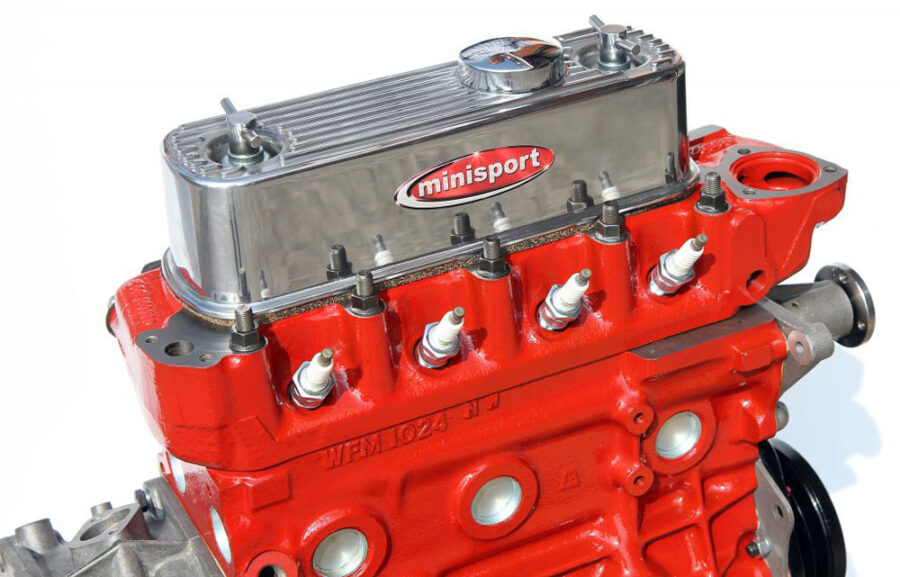The Mini is one of the most recognisable and well-loved vehicles around. For over 60 years, its abilities to offer a unique driving experience for the fraction of the cost of other vehicles has seen it gain admirers from all over the world.
At the heart of this love is the Mini engines that are able to get the most out of the petrol tank, saving on costs. But how did the idea for creating this timeless vehicle come about?
Mini Engines – A Brief History
 In 1956, the nationalisation of the Suez Canal (a major route for fuel transportation) by Egypt sparked a crisis that saw petrol rationed in Britain. During this time, sales of cars fell and the industry was required to think about new designs that were able to make petrol last for longer.
In 1956, the nationalisation of the Suez Canal (a major route for fuel transportation) by Egypt sparked a crisis that saw petrol rationed in Britain. During this time, sales of cars fell and the industry was required to think about new designs that were able to make petrol last for longer.
Imported cars were still somewhat of a rarity back in those days, but nevertheless, Fiat’s from Italy and German ‘bubble cars’ were starting to be driven on British roads, as they simply did not need as much fuel to run. Seeing this trend develop, the British Motor Corporation (BMC) put in place plans for an economical car that, aside from offering value for money, would also not skimp on offering a comfortable driving experience. The resulting design sealed the Mini’s place in history.
Alec Issigonis, a designer who had worked for Morris Motors’ Minor range of cars, designed a vehicle (which would be released under the Morris brand) that would allow for a front wheel drive and transversely mounted Mini engines. This compact design would save much space for other features of the car – the 10ft-long, 4ft-wide frame would be able to fit four people in. This is a ‘bigger on the inside’ quality that astounded the public on its release, superseding Doctor Who’s TARDIS by four years.
The Mini In The 1960’s.
 Being new, innovative and affordable, it isn’t really a surprise that the Mini exploded in popularity during the following decade. With rationing (even that of fuel) long gone by the mid-late 1960’s, the baby boomer generation were becoming young adults and the era dubbed the swinging sixties was born.
Being new, innovative and affordable, it isn’t really a surprise that the Mini exploded in popularity during the following decade. With rationing (even that of fuel) long gone by the mid-late 1960’s, the baby boomer generation were becoming young adults and the era dubbed the swinging sixties was born.
The 1960’s also saw a transformation in the way people got around the country, as motorways were built and extended to provide drivers with a means of travelling long distances; venturing further than they have ever done before. Travelling further creates a need for more fuel – Mini engines were in a perfect position to open up the country for a new generation of wide-eyed people.
During this era, British-made things became popular all around the world; art, music and fashion proving to be particularly trendy exports. The heart of this cultural revolution, especially being the car that got everyone around, was the Mini.
As a result of its popularity, the classic Mini design has intertwined itself with British culture of the era; Michael Caine’s character didn’t use a van to store all the gold bullion in, during the events of 1969’s The Italian Job – he needed something small, nimble and quick. A stylish car that could also weave its way through a traffic jam (in Turin, Italy – where they make Fiat’s, by the way). That’s why he used three Mini Cooper S’s.
Still Going Strong, Sixty Years Later.
As technology improved, economical cars became the industry standard and eventually (though it took many years!) the mass production of the Mini ceased. Despite this, because of its reputation, the memories it has created and the quality of drive on offer, the love for the Mini has never waned. Whether it’s through restoration, racing or repurposing, creating custom Mini’s from scratch, people of all ages continue to create a connection with this special vehicle.
Here at Mini Sport, we too are still going strong after more than fifty years. Since the heyday of this brilliant innovation, we have been supplying parts and spares to fellow Mini enthusiasts all around the world. So if you’re looking for complete Mini engines, parts or indeed, anything else at all Mini-related, why not browse our extensive online catalogue? If you would like to learn more about the Mini and the parts we have on offer, then why not get in touch with our Mini specialists directly?
Get In Touch With The Mini Specialists Today.
If you have any questions about Mini engines, servicing, engine remanufacture or just simply need some advice, then please feel free to give us a call today on 01282 778731. Alternatively, you can contact us by e-mail at hello@minisport.com.


